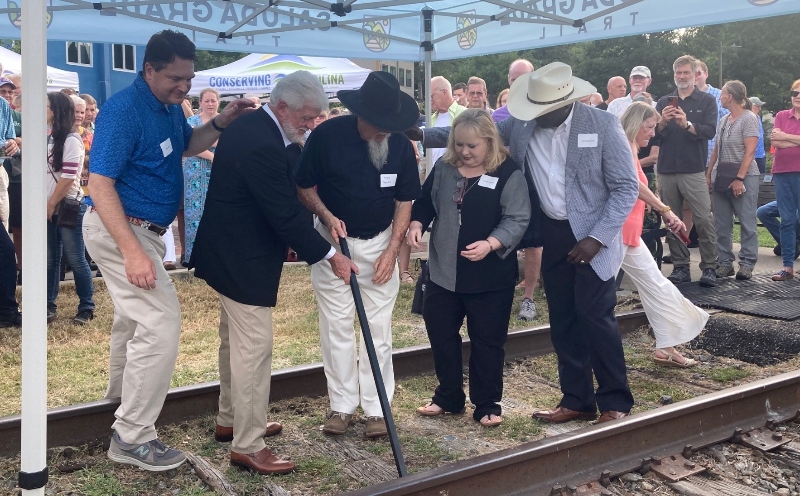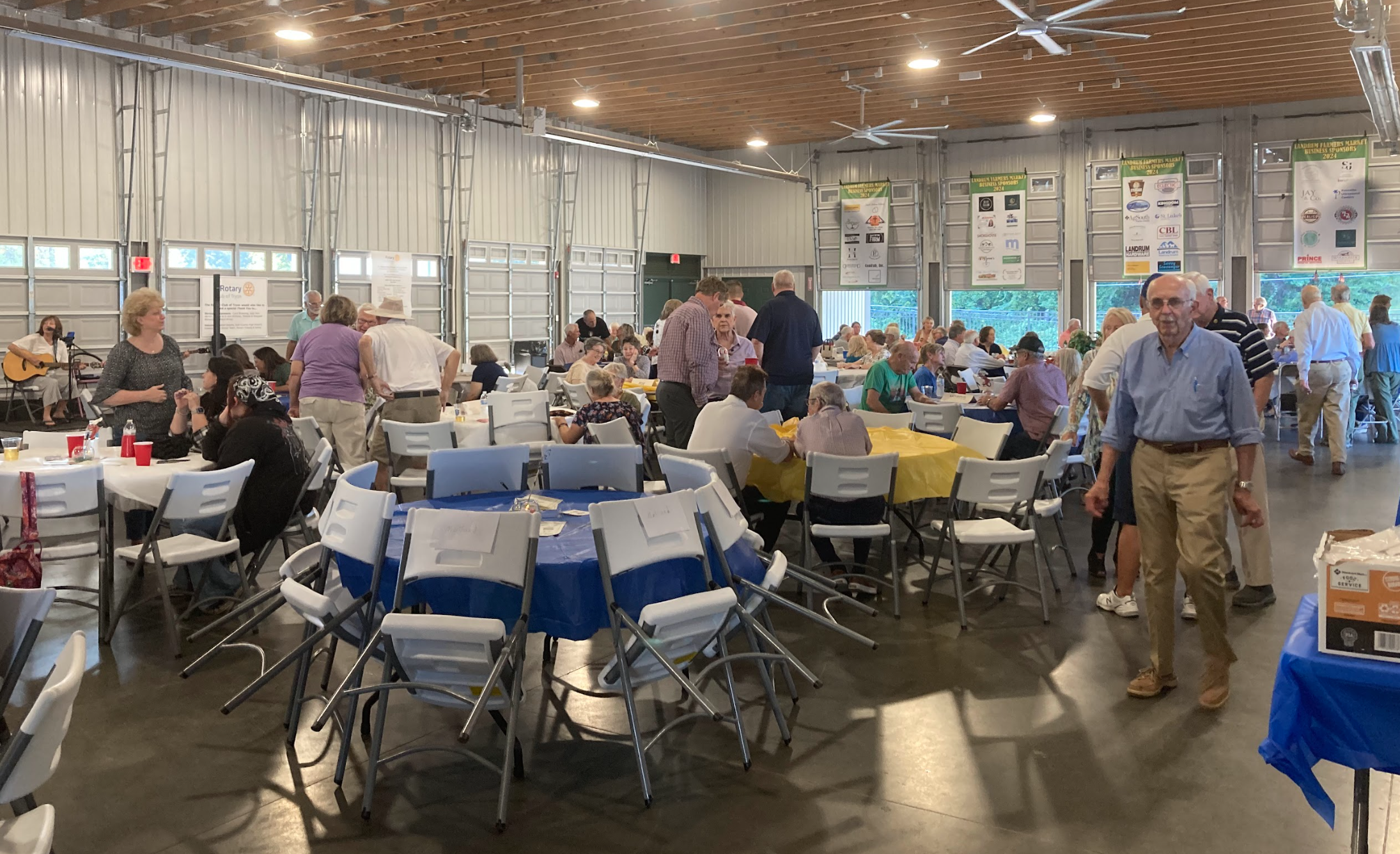Remembering Arledge Printers
Published 10:00 pm Thursday, October 13, 2016
I remember when Elbert Hubbard “Hub” Arledge Jr. was born to Elbert Sr. and Zella Ballew Arledge when I was 12. After Elbert went off to WWII, Zella would bring young Hub in to visit us in the back rooms where the Bulletin and Elbert shared printing machinery and type. She set Hub on a desk and I brought some pieces of “furniture” (small wood pieces used to fill the space between the type and the frame that went onto the press) for him to play with.
Mr. Vining kept Elbert’s business alive until he could get back home. I was fast becoming a journeyman letterpress printer, so I was a big part of that effort. Now Hub is closing his printing business and has the building up for sale. I finally found time to visit with him and let him tell me about his block of Trade Street and reminisce about shared experiences and olden times.
Hub’s grandfather Tandy William (“T. W.”) Ballew bought the corner lot (Trade and Howard) in 1912 and built a grocery store on it. He also bought a lot across the street for their house. Young Marshall would not start to school until his sister Zella was old enough; they graduated together in 1928 and went off to Furman (now University) for further schooling. The Depression ended that venture, however, and Marshall began to run the grocery store.
Trending
P. L. (“Les”) Barnette owned and operated an Esso station (one of Stott’s car lots is there now) next door (beyond a wooded area) and also maintained an office across the street. Roy Dalton had a Shell station next to Les on the corner (Re-Max Advantage realty is there now).
The corner across from Ballew’s Grocery was occupied by the Pierce-Wilson Ford dealership, next was the Ballew home set back from the street. Next was a sort of strip mall building containing Tollie Ross’s Sandwich shop, Surveyor Howard Frankenfield’s office, Les Barnette’s office, and the Trailways bus station. Next was an access road leading to McGuinn’s Sheet Metal Fabrication shop behind the building. Finally, there was Mack Durham’s Texaco station on the Palmer street corner.
Hub commented that Tryon used to support more than a dozen gas stations and more than a half dozen grocery stores. He does not know why the gas stations died off, but he says the grocers all eventually failed because they could not collect many of their outstanding charge accounts: IGA has survived, probably because they do only a cash business.
America has to say goodbye to another of its great sons: Arnold Palmer has died at age 87. Known to everyone as a premier golfer, he is known to pilots as a consummate professional. He started with a used Aero Commander, followed by Learjets, in one of which he helped set an around-the-world record of less than 58 hours in 1976. He later bought one of the first Cessna Citations and owned and flew several of them until he gave up flying as pilot-in-command at age 55. He also flew a Boeing 747 before they entered airline service.
Arnie is also famed for his beverage, the “Arnold Palmer,” which he said is “mostly iced tea, with a splash of lemonade.” I have happily watched his last commercial on our TV, one of few actually pleasant ones to see (my opinion). I enjoy seeing it over and over, whereas I either mute or turn away from the more obnoxious ones. Do the makers of TV commercials really think they can annoy people into buying?





